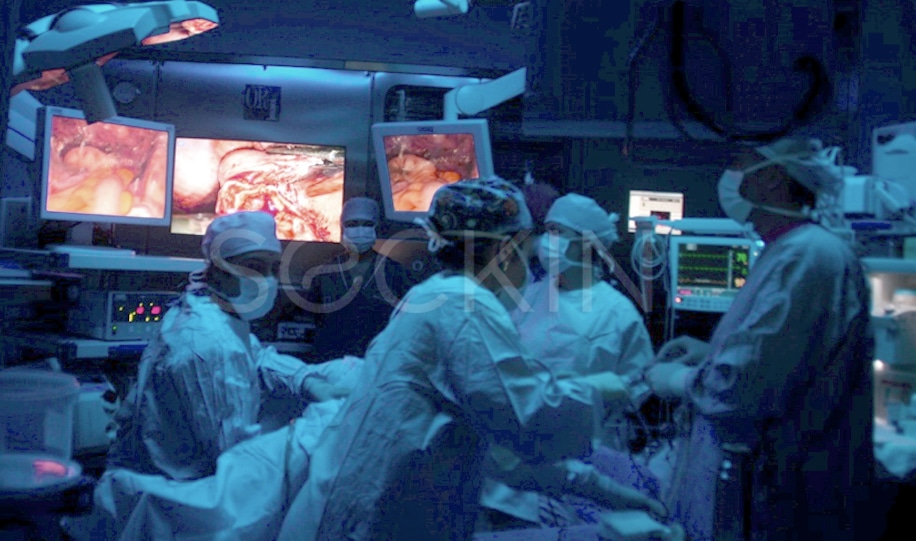
What to do After Endometriosis Surgery. If you need to visit the Emergency Room, please make sure to go to Lenox Hill Hospital 100 East 77th Street. This is very important as our team can only work out of this hospital, without exception.
Activity
- Do not drive for at least 3 days after surgery.
- Start walking around as soon as you get home. You may use stairs, but move slowly.
- Wear loose, non-binding clothes.
- You may shower the day after surgery. It is okay to use soap and water on your abdomen, but do not wash or scrub your incisions. After showering, gently blot incisions dry with a towel.
- No douching, tampon application, tub baths, swimming, or sexual intercourse for 6 weeks after surgery.
- Do not lift more than 10 pounds or engage in abdominal exercise of any sort for 6 weeks after surgery.
Diet
- Stay on a clear liquid diet until you are able to pass gas. Hot liquids are especially beneficial
- Avoid spicy foods the first 3 days after surgery
- Avoid leafy vegetables, and fiber-heavy foods such as kale and beans
- Eat simple, light meals
- Hot tea is helpful for mobilizing the bowels and reducing gas pain
Incision Care
- Remove the clear bandage and gauze from your belly-button 48 hours after your surgery. The other incisions will be covered by small strips of tape (“steri-strips”). The steri-strips will fall off on their own within 7 days, or they will be removed at your post-op visit in the office. If they have not fallen off after seven days, you can remove them yourself.
- Keep your incisions clean and dry. If you prefer to, you may clean your belly button with hydrogen peroxide twice per day, but it is not necessary.
- Do not apply any ointments or creams to your incisions.
- There is no need to cover your incisions with band-aids.
Pain medication after endometriosis surgery
- Toradol: 50 mg (instructions on the bottle)
OR
- Advil (ibuprofen, Motrin): 600 mg every 6 hours around-the-clock for 5 days
- DO NOTtake Toradol and Advil. Use one or the other
PLUS
- Tylenol 1,000 mg every 6 hours around-the-clock for 5 days
- Alternate Advil with Tylenol, so you will be taking some kind of pain medication every 3 hours
PLUS
- Pyridium 200 mg (for bladder and UTI prevention)
Bowel Regime
- The bowels can become “sleepy” after surgery, but it is very important that you do not become constipated.
- Walking and moving around is the best way to get rid of gas pain and “wake up” the bowels.
- Take Gas-X (simethicone) every 8 hours to help with gas pain.
- Take a stool softener such as Colace 100mg (docusate sodium) twice per day.
- Take a mild stimulant such as Senna 17.2 mg one to two times per day until you have regular bowel movements.
- If you still have not had a bowel movement after 2-3 days of taking Colace and Senna, take 1 generous tablespoon of Miralax (polyethylene glycol 3350) daily.
- If you still have not had a bowel movement after trying all three medications, you may need to give yourself a Fleet Enema. This can be bought over-the-counter at any drugstore. Follow the instructions on the bottle.
Pregnancy after endometriosis surgery
- The best time to achieve pregnancy is immediately after endometriosis excision surgery
- If you do not wish to become pregnant, you may be put on a low-dose oral contraceptive pill or a Mirena IUD, depending on your surgical findings
Normal Post-Surgical Symptoms after endometriosis surgery
The following are post-surgical symptoms that are normal and can arise within the first few days of surgery. If any of these complaints last longer than specified below, please contact us.
- Light vaginal bleeding
- It is normal to have some spotting or light vaginal bleeding (generally nothing heavier than a period) for up to 2-3 weeks after surgery
- Heavy bleeding (soaking through a pad every 30-60 minutes) is not normal and you should call the office to speak with Dr. Seckin
- Abdominal tenderness, usually lasting 1-3 days after surgery.
- Lack of bowel movement should last no more than 72 hours after surgery. If it lasts longer than 72 hours please contact us.
- Shoulder pain, usually lasting 24-48 hours after surgery
- For post supracervical hysterectomy (uterus removed, cervix retained) procedures it is not uncommon to experience some spotting/light bleeding around the time of your period.
You should contact us if:
- You experience severe pain or abnormal symptoms
- You develop vaginal bleeding heavier than a menstrual period, persistent nausea, fever, vomiting, or increasing pain not relieved by your medication
- Your temperature is greater than 100.4F
- You have any additional questions or concerns
- In case of a medical emergency, please call 911
If you are experiencing severe pain of any kind, please call the office at (212) 988-1444 and we will put you into contact with Dr. Seckin
Get a Second Opinion
Our endometriosis specialists are dedicated to providing patients with expert care. Whether you have been diagnosed or are looking to find a doctor, they are ready to help.Our office is located on 872 Fifth Avenue New York, NY 10065.
You may call us at (646) 960-3080 or have your case reviewed by clicking here.